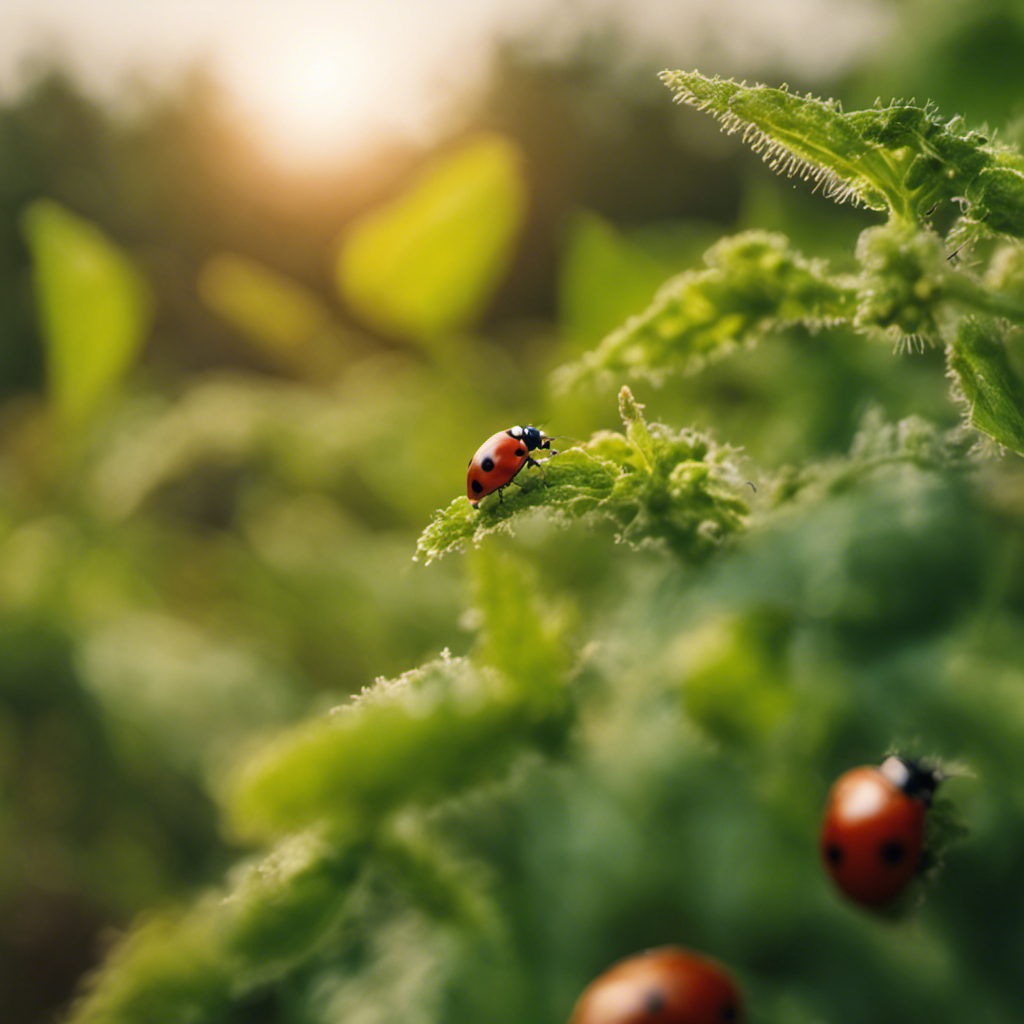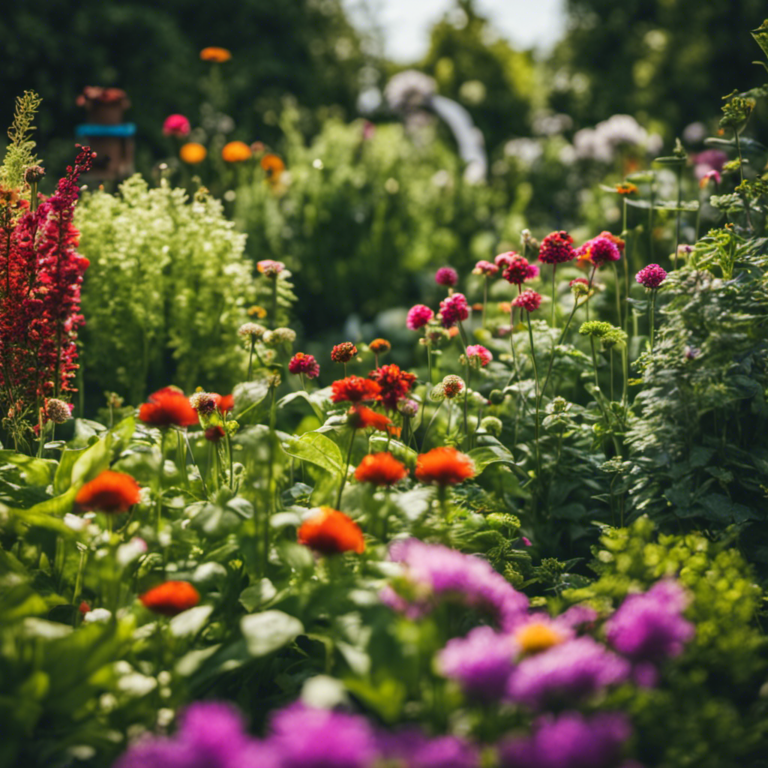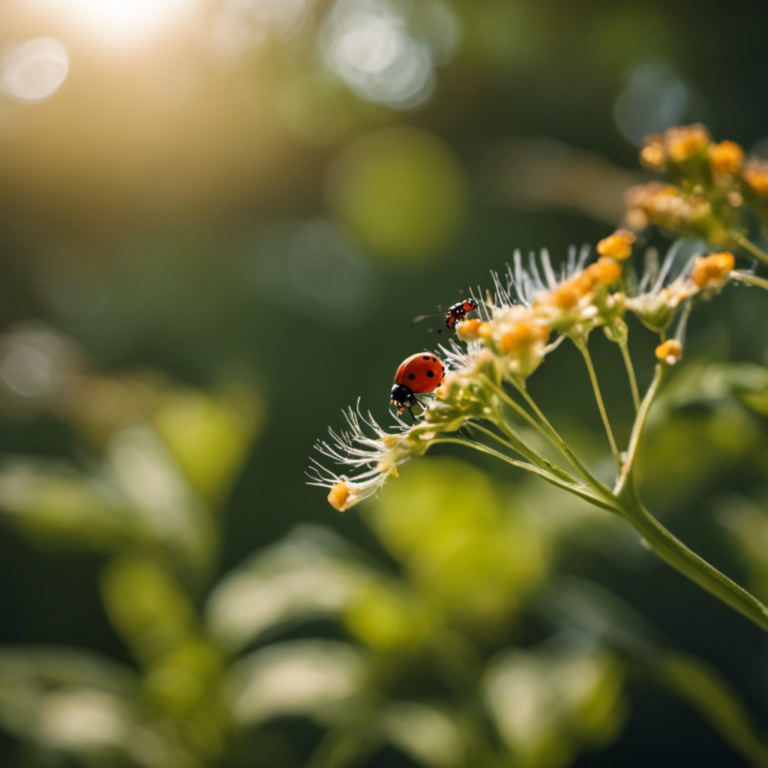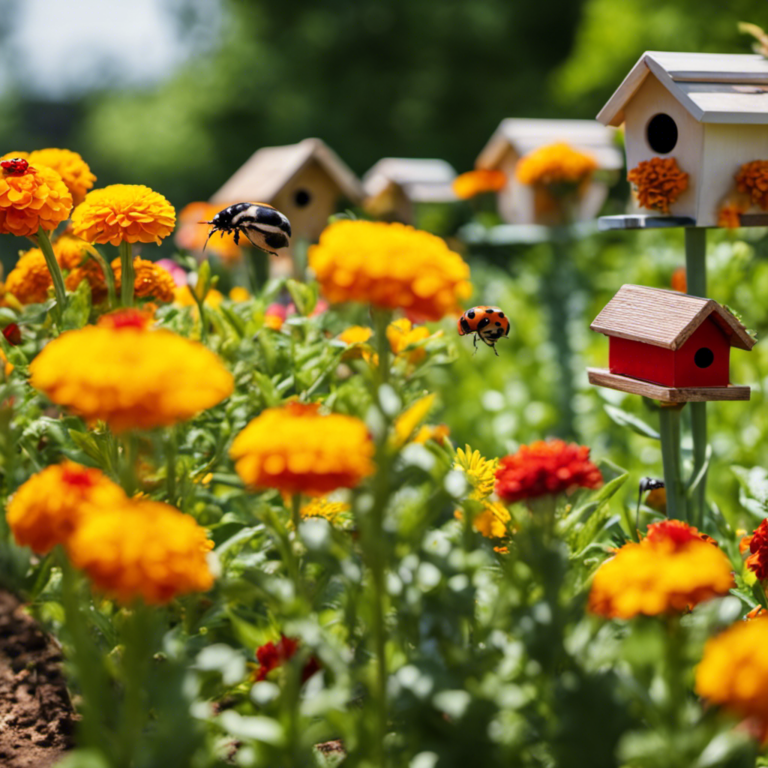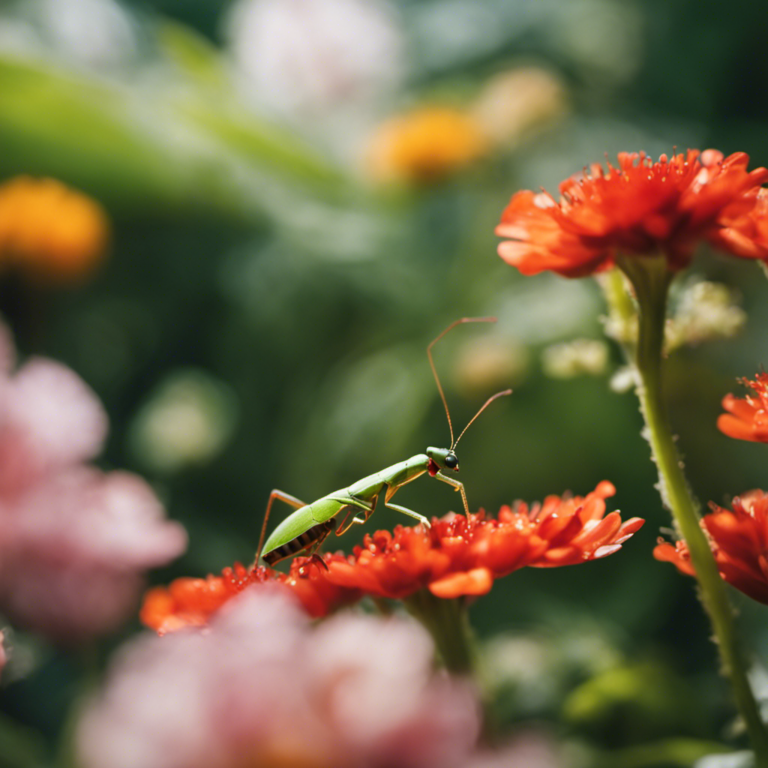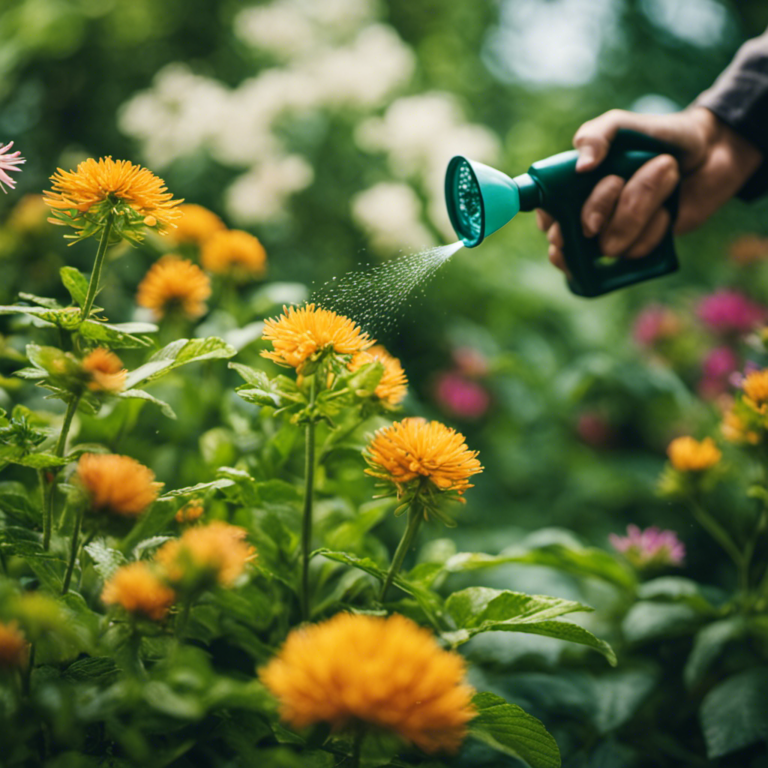Are pests causing damage to your crops? Don’t worry, because there are sustainable farming methods that can help you effectively eliminate them while protecting the environment.
Instead of relying on harmful chemicals, you can employ natural predators, practice crop rotation, plant trap crops, implement companion planting, and opt for organic pesticides. These eco-friendly tactics allow you to combat pests without disrupting the ecosystem.
In this article, we will provide you with a comprehensive guide on these methods, ensuring a fruitful harvest and a more environmentally friendly future.
Key Takeaways
So there you have it, folks. By adopting eco-friendly farming practices, we can effectively eliminate bothersome pests without causing harm to the ecosystem. Who needs harmful pesticides when we have nature’s very own pest control team?
There are several sustainable options available to us, such as attracting natural predators and implementing strategic crop rotation and trap crops. Let’s say no to chemicals and embrace a greener, more harmonious approach to farming.
Not only will our actions benefit Mother Nature, but they will also have a positive impact on our crops. Happy farming!
Natural Predators
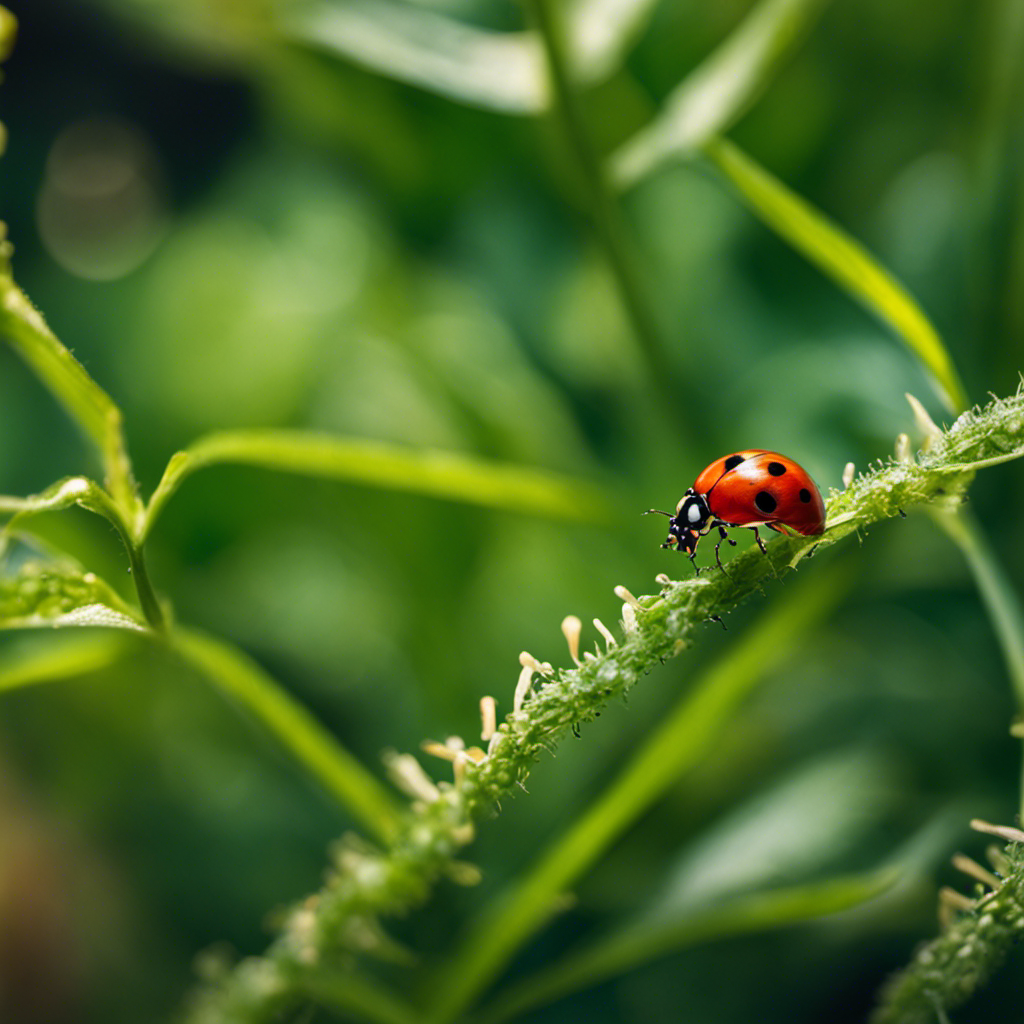
To effectively manage pests on your farm, it’s recommended to rely on natural predators instead of using harmful pesticides. This approach, known as biological control or integrated pest management, isn’t only environmentally friendly but also sustainable.
By promoting the presence of natural predators in your farming ecosystem, you can effectively control pest populations without resorting to chemical solutions. Beneficial insects and animals like ladybugs, lacewings, spiders, and birds can help keep pests like aphids, mites, and caterpillars in check by feeding on them.
To attract these helpful creatures, it’s important to create habitats that provide them with food, water, and shelter. Planting a variety of crops and flowers, incorporating hedgerows, and leaving patches of wild vegetation can all contribute to a healthy and balanced ecosystem that supports natural pest control.
Embracing biological control not only reduces the use of harmful chemicals but also promotes biodiversity and long-term sustainability on your farm.
Crop Rotation

Crop rotation is a valuable farming practice that can greatly improve your pest management efforts while promoting sustainability. By planting different crops in a specific sequence over multiple growing seasons, you can effectively prevent the buildup of pests that are specific to certain crops. This interrupts the pests’ life cycle and reduces their population.
Additionally, crop rotation helps maintain soil health by preventing nutrient depletion and reducing the risk of soil-borne diseases. It also aids in controlling weeds as different crops have varying weed preferences.
Trap Crops
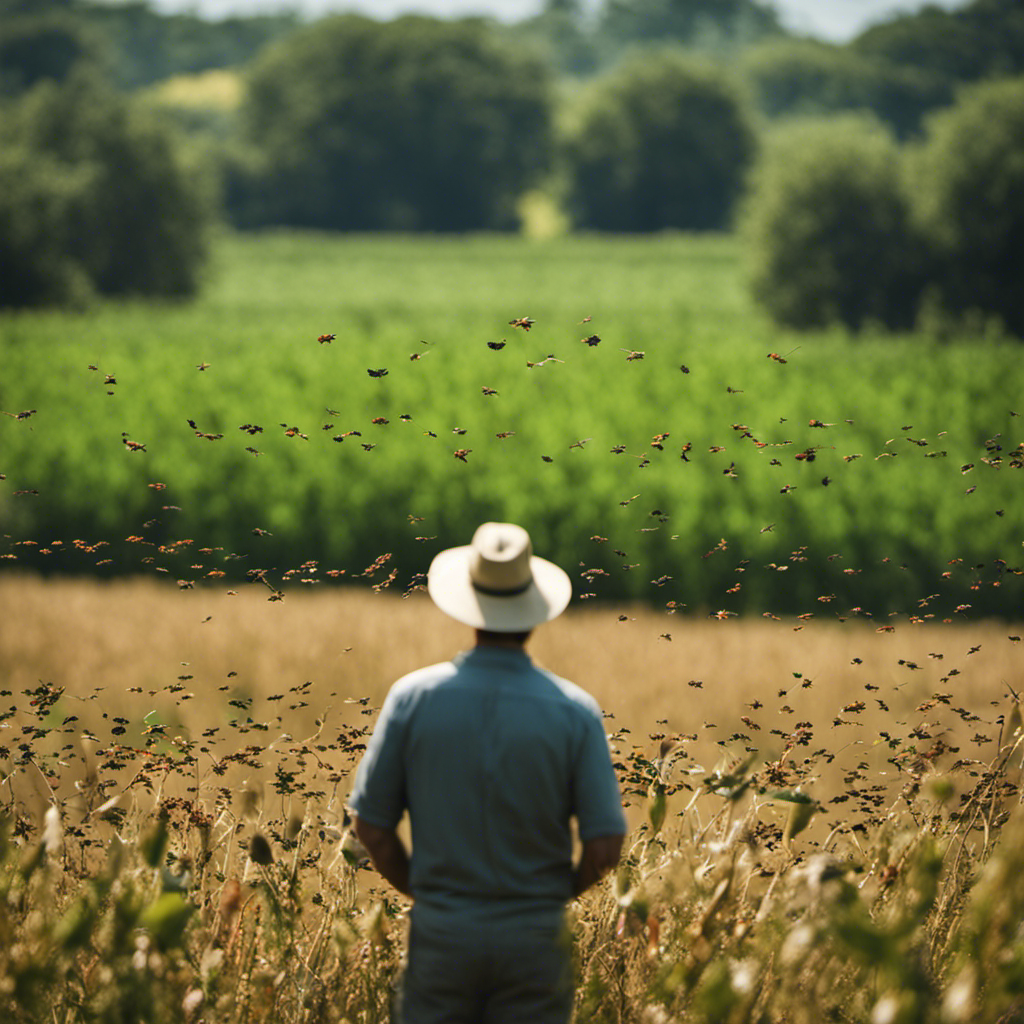
Using trap crops is a practical and eco-friendly farming tactic that can effectively control pests and safeguard your main crops. Here are three reasons why trap crops are beneficial for pest management:
-
Attracting pests: Trap crops are specifically chosen to lure pests away from your primary crops. By planting a crop that pests find irresistible, you can divert their attention and prevent them from infesting your main plants.
-
Providing a sacrificial crop: Trap crops serve as sacrificial plants that pests can feed on. By offering them an alternate food source, you can minimize the damage to your primary crops and protect your harvest.
-
Natural pest control: Trap crops also attract beneficial insects and predators that feed on the pests. This creates a natural balance in your farm ecosystem and helps control the pest population without relying on harmful pesticides.
Companion Planting
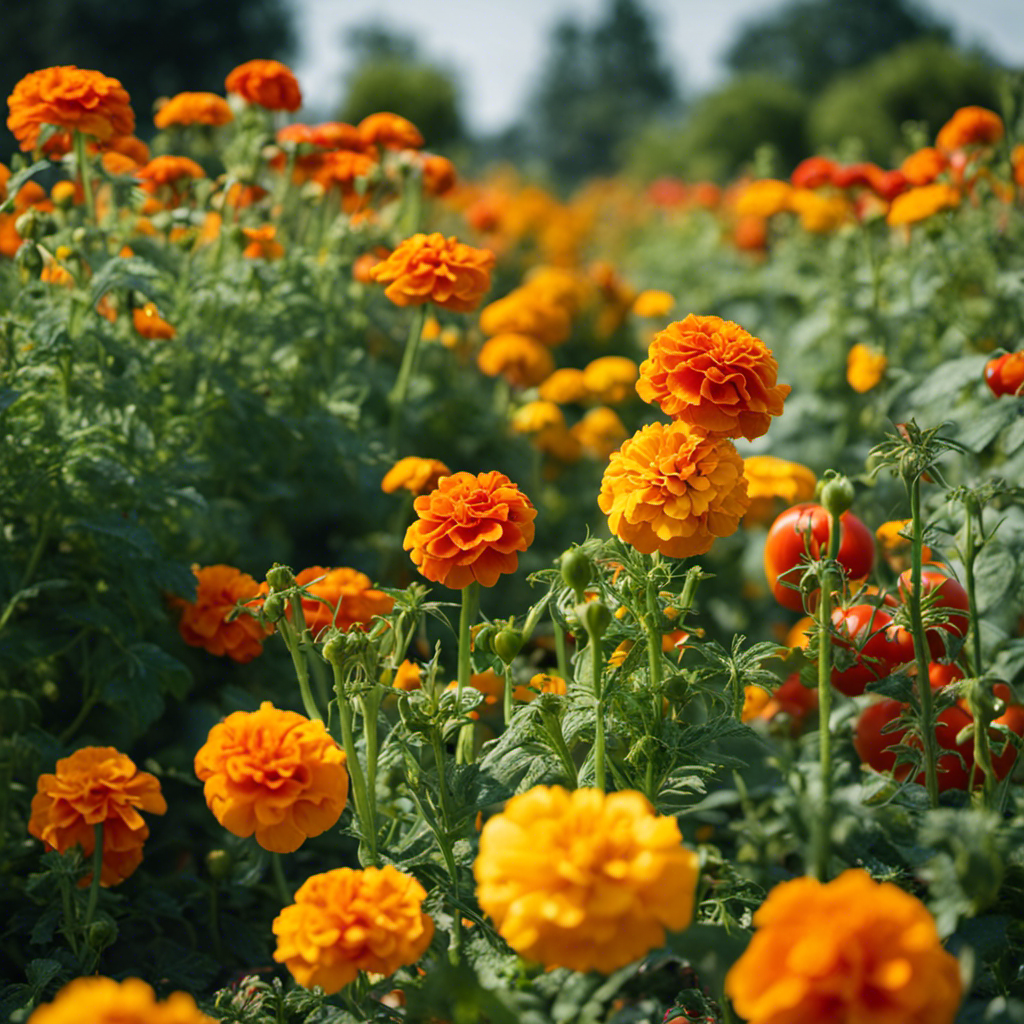
Enhance your pest management strategy by implementing companion planting, a method that involves strategically planting compatible crops together to promote natural pest control. With companion planting, you can create a harmonious environment where plants support and protect each other from pests.
For example, tomatoes and basil are compatible crops that work well together. Basil acts as a natural repellent for tomato hornworms, helping to keep them at bay. Another beneficial combination is beans and corn. Beans have the ability to fix nitrogen in the soil, which in turn benefits the growth of corn. Marigolds and cabbage also make a great pairing. Marigolds have properties that deter cabbage worms, helping to protect your cabbage plants.
Companion planting not only reduces the need for chemical pesticides but also attracts beneficial insects to your garden. By planting flowers like calendula or alyssum alongside your vegetables, you can attract pollinators and predatory insects such as ladybugs and lacewings. These helpful insects feed on pests like aphids, keeping them in check.
Incorporating companion planting into your farming practices creates a balanced ecosystem that naturally controls pests while promoting healthy and abundant crop yields. It’s a sustainable and effective way to manage pests in your garden.
Organic Pesticides
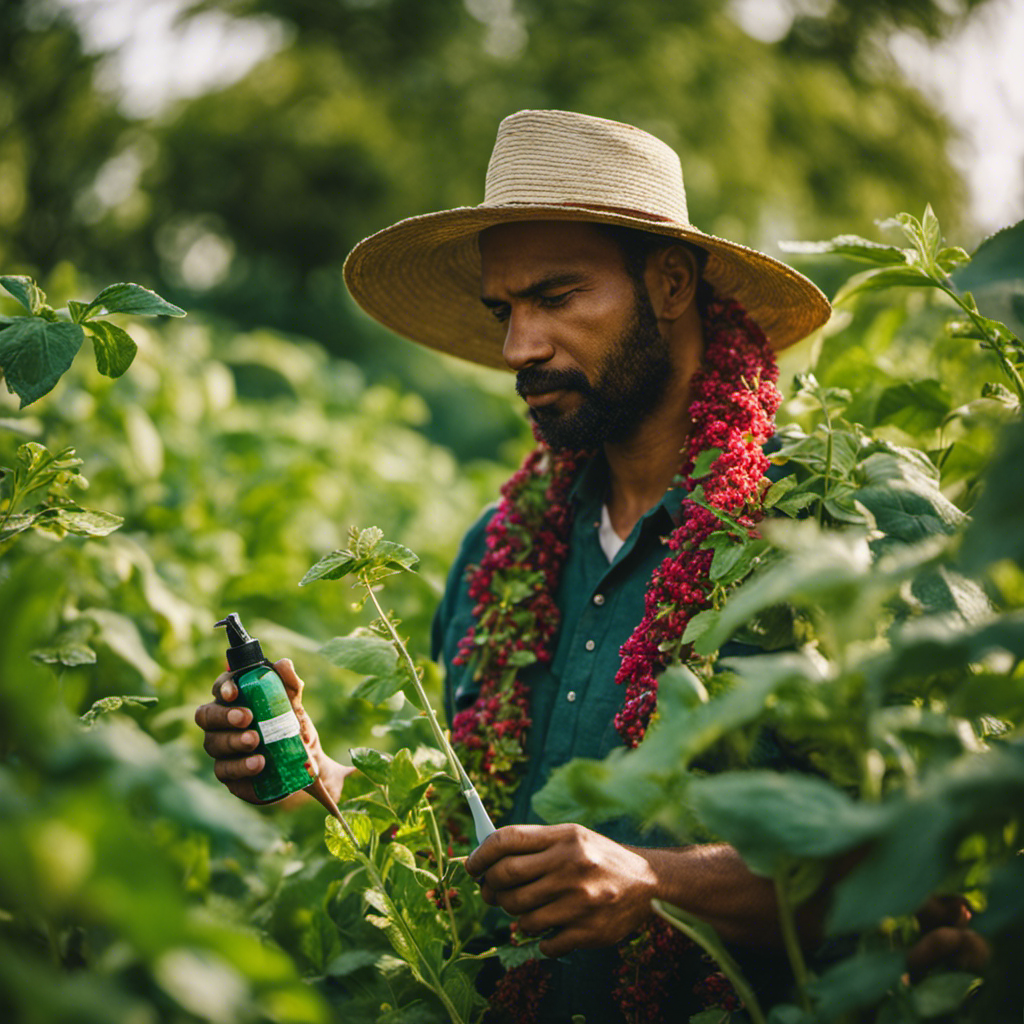
To effectively manage pests in your garden, consider using organic pesticides. Organic pesticides have several advantages over chemical alternatives. They’re derived from natural sources and don’t contain harmful synthetic chemicals, making them safer for you, your family, and the environment.
Here are some alternatives to chemical pesticides that you can use:
-
Neem oil: Neem oil is derived from the neem tree and can effectively control a wide range of pests, including aphids, spider mites, and whiteflies.
-
Bacillus thuringiensis (Bt): Bt is a naturally occurring bacterium that targets specific insect larvae, such as caterpillars. It’s safe for humans and beneficial insects like bees and ladybugs.
-
Garlic spray: Garlic has natural insect-repelling properties. By making a garlic spray and applying it to your plants, you can deter pests like aphids and beetles.
Using organic pesticides not only helps you manage pests effectively but also promotes a healthier and more sustainable approach to gardening.
Conclusion
So there you have it, folks. By adopting environmentally-friendly farming practices, we can effectively get rid of bothersome pests without causing harm to the ecosystem. Who needs harmful pesticides when we’ve nature’s very own pest control team?
From attracting natural predators to implementing strategic crop rotation and trap crops, there are numerous sustainable options available to us. Let’s say no to chemicals and embrace a greener, more harmonious approach to farming.
Our actions won’t only benefit Mother Nature, but also our crops. Happy farming!
